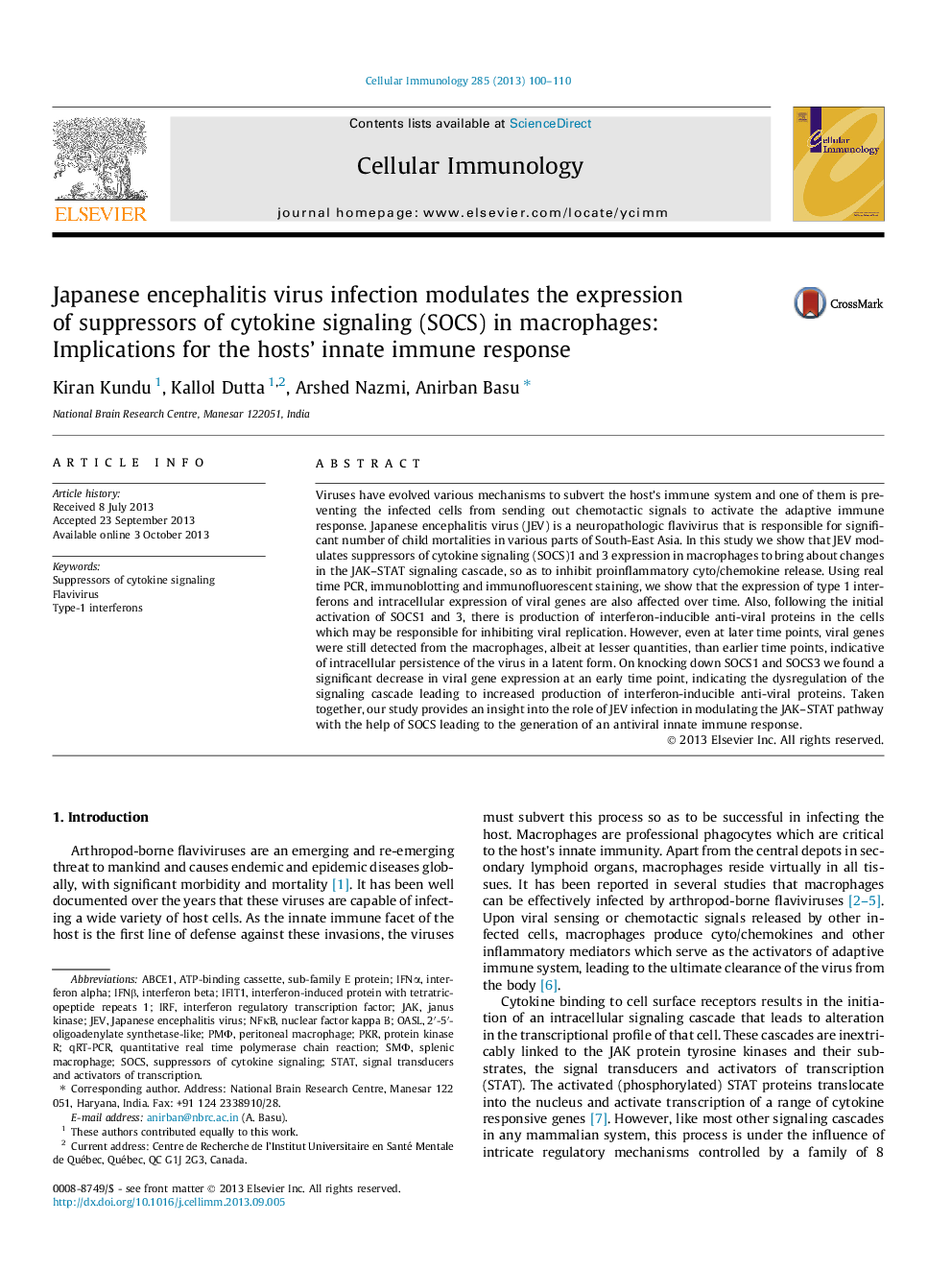| کد مقاله | کد نشریه | سال انتشار | مقاله انگلیسی | نسخه تمام متن |
|---|---|---|---|---|
| 2167178 | 1549406 | 2013 | 11 صفحه PDF | دانلود رایگان |

• JEV up regulates SOCS level in infected macrophage.
• Not all SOCS molecules are up regulated, i.e. selective up regulation occurs.
• JEV up regulates SOCS1, SOCS3 to modulate JAK–STAT antiviral axis.
• SOCS1 and SOCS3 knockdown can reduce viral load within infected macrophages.
Viruses have evolved various mechanisms to subvert the host’s immune system and one of them is preventing the infected cells from sending out chemotactic signals to activate the adaptive immune response. Japanese encephalitis virus (JEV) is a neuropathologic flavivirus that is responsible for significant number of child mortalities in various parts of South-East Asia. In this study we show that JEV modulates suppressors of cytokine signaling (SOCS)1 and 3 expression in macrophages to bring about changes in the JAK–STAT signaling cascade, so as to inhibit proinflammatory cyto/chemokine release. Using real time PCR, immunoblotting and immunofluorescent staining, we show that the expression of type 1 interferons and intracellular expression of viral genes are also affected over time. Also, following the initial activation of SOCS1 and 3, there is production of interferon-inducible anti-viral proteins in the cells which may be responsible for inhibiting viral replication. However, even at later time points, viral genes were still detected from the macrophages, albeit at lesser quantities, than earlier time points, indicative of intracellular persistence of the virus in a latent form. On knocking down SOCS1 and SOCS3 we found a significant decrease in viral gene expression at an early time point, indicating the dysregulation of the signaling cascade leading to increased production of interferon-inducible anti-viral proteins. Taken together, our study provides an insight into the role of JEV infection in modulating the JAK–STAT pathway with the help of SOCS leading to the generation of an antiviral innate immune response.
Figure optionsDownload as PowerPoint slide
Journal: Cellular Immunology - Volume 285, Issues 1–2, September–October 2013, Pages 100–110